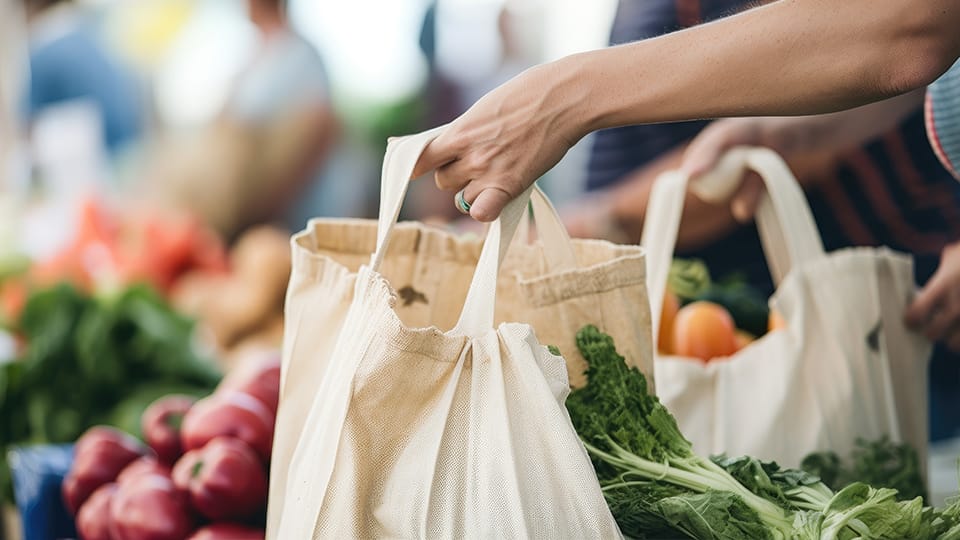HungerTech Challenge to focus on logistics to fight food insecurity
Subscriber Benefit
As a subscriber you can listen to articles at work, in the car, or while you work out. Subscribe Now
AgriNovus Indiana, the not-for-profit initiative focused on growing the state’s agbioscience sector, is using newly released research to inform the focus of its HungerTech Innovation Challenge for 2024.
The research, conducted by Purdue University student Tushar Sonvani, shows a major gap between the amount of people facing food insecurity and the amount of the nation’s food supply that goes to waste.
“The research identified potential areas within the food industry, the things around infrastructure, logistical planning, some of what I would consider basic tenants, have inefficiencies in them that are ripe for technology to impact,” said Geoff Zentz, senior director of innovation for AgriNovus.
Zentz told Inside INdiana Business the challenges that exist surrounding moving food to areas that need food create a huge opportunity.
“Some of the information from that research that was outlined kind of gives the hypothesis that there’s actually not a shortage of food creating food insecurity but inefficiencies in getting the food in the communities that it needs to in order to impact those who are food insecure is the larger problem,” he said.
Sonvani’s study, “Addressing Food Insecurity and Waste in the United States Through a Market-Driven Model,” shows nearly 12% of households face food insecurity, while up to 40% of the nation’s food supply is discarded annually.
The research shows the problem is exacerbated by logistical inefficiencies, inaccurate demand planning and unequal access to information about the availability of food.
“There’s a real gap in the market around just really knowing where to get the food, when,” said Zentz.
AgriNovus is using these challenges to inspire entrepreneurs and businesses to come up with a technology-based solution through the HungerTech Challenge. Participants are being tasked with looking for opportunities for innovation in several areas:
- Logistics: Current critical inefficiencies exist in capturing, managing and redirecting surplus food from points of excess – such as producers and retailers – to communities grappling with food insecurity (this is exacerbated for perishable goods).
- Forecasting: Deployment of tools for accurately forecasting the production of surplus food and quantifying demand from food-insecure populations have significant deficiencies.
- Preservation: Addressing shortfalls in current food preservation technologies to prolong shelf life of perishables without detracting nutritional value or safety.
“The challenges that face food insecurity are numerous, systemic and widespread,” Sonvani said in a news release. “Participating in the HungerTech Research Sprint creates a new way for entrepreneurial minds to tackle these challenges head on with more than one solution to better connect food supply with food demand.”
The teams participating in the HungerTech Challenge will work over about a month and a half to develop their solutions by working with the AgriNovus team in one-on-one coaching meetings. They’ll also have the chance to meet with subject matter experts in both individual and group sessions to get a better understanding of the problem they’re trying to solve.
“They’re going to start from the ideation stage, and we’re going to walk all the way to the point where they walk out with a business that they’re pitching for judges to evaluate at the end of the the program,” said Zentz. “Its’s going to have a business model. It’s going to have revenue, have the ability to really understand how it can be sustainable and make the impact for our food insecure neighbors.”
The winner of the HungerTech Challenge will receive $25,000 to help accelerate commercialization of their solution.
Zentz noted that having research to fuel the innovation challenge is not only helpful to those participating, but others who may not have a chance to participate but may want to develop solutions on their own.
“We also want to put it out so that other innovators—whether they’re in the HungerTech Challenge or not—see the opportunities that exist in the space,” he said. “And if we can use that research to inspire solutions to this problem, whether in HungerTech, or outside of HungerTech, that’s the important lasting impact that we hope we make with this research and program as a whole.”
Last year’s HungerTech Challenge winner was Indianapolis-based GreenBasket. Founded by a group of IUPUI students, the startup has developed an app called CropSpot, which allow users to send local goods and produce to central community locations for lower delivery prices, similar to a pop-up farmers market.
